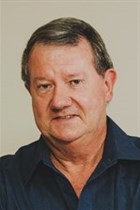![[I Am Talent]: Managing your performance and learning](https://biz-file.com/c/1509/306735.jpg)
Your performance must include the following features to build your image, credibility and talent proposition:
Managing your performance can be likened to an acrobat on a tightrope! The sheer cliff face of performance standards and high expectations can be a daunting "balancing act". To make things worse, performance feedback is rarely forthcoming from managers and remains the Achilles heel of leadership.
So how do you match what is required from you to what you provide?
We always encourage individuals to take ownership of their performance and obtain a specific understanding of what management expects from you, against the standards, quality of work and timeframes associated with your job. The next important hurdle is to ask your boss how you're doing with your assignment. So many people keep waiting for cues and signals from higher authority and in the absence of any feedback or direction, they blaze away at their work with all guns firing - often shooting at the wrong target.
The onus is on you for being pro-active in getting feedback and acknowledgement and knowing which development areas need to be addressed. Whether your organization has established performance management processes or not we encourage you to pin your boss down a number of times a year discuss your work performance and development needs.
This prevents any shocks and surprises, down the line at a formal review where rewards are at stake. This practice comes naturally to high performance people who understand the importance of continuously seeking out relevant feedback about how they're doing and push themselves for improvements to stretch targets and superior results - like an athlete's personal best.
If performance is all about delivering results, learning is your "engine room" that gives you the fuel to close the gap of knowledge, skills and behaviour to get you to your goals. For learning to occur, you need 4 elements of change to work together. You need to have the awareness of the need to improve (through feedback), the insight that only you can effect this change (through reflection), the willingness to make the effort to develop yourself (through commitment) and take daily action to build new habits and make it happen. This is depicted visually below.
Just as we have business strategies, we need learning strategies and plans. Once you understand what is required, it is important to prioritise learning into a few focus areas at a time, and to choose the best learning methods for your style and the time available to you. Choices in learning also require balancing specialist skills with leadership competencies to be effective in your role. As with any journey it helps to have a plan, a coach and to receive regular feedback, to ensure that learning is on-going and effective.
The real high-flyers are naturally inquisitive and continuously push the boundaries to broaden their experience and knowledge. Learning never really stops. In striving for excellence in what you do, you need to go through the process of taking what works into the future, be open to learning new things ... and importantly, letting go of what is not working. Explore both traditional and pioneering approaches for skills development and personal growth. These can include the familiar classroom-based learning, workshops, seminars and formal programs as well as e-learning, online links, project immersion, action learning and coaching.
People who stand out from the crowd - whether in school, college, business or on the sports field - demonstrate very specific attitudes to learning. They have the willingness to:
